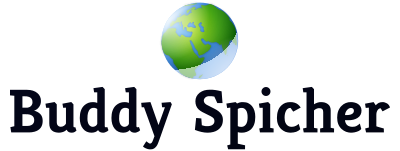
Search engine optimization (SEO) is an essential element of any website, helping drive organic traffic and enhancing online visibility.
SEO (search engine optimization) involves understanding how Google works and applying best practices that align with your goals. Furthermore, creating high-quality content which provides relevant answers to search queries is essential for good SEO practices.
Keywords
Keywords are at the core of search engine optimization, and using relevant terms to rank higher in SERPs. This process involves identifying which terms describe what customers are searching for as well as identifying content types that meet those needs – this may involve reviewing existing material or using keyword research tools to understand which terms pertain to a business’s target audience best.
Finding suitable SEO keywords can be a complex endeavor. In essence, the goal should be to select words that accurately depict your products or services while still having sufficient search volume – this way your content will reach a larger audience. A free keyword research tool provides the ideal way to do this: it gives a list of related words with their search volumes.
On-page optimization
On-page optimization is one of the key elements to creating engaging website content. It involves optimizing a page’s title tag, meta description, internal linking structure, header tags (h1> and h2>), header content with important keywords embedded, image alt tags with pertinent text etc.
As part of your on-page SEO techniques, ensure your content is easy for both search engines and readers to read. Readability may not directly contribute to ranking factors but could increase traffic, conversions, and revenue for you.
Additionally, on-page SEO best practices include using descriptive anchor text when linking internally, linking all pages back to the homepage or other important areas, and including all important pages within each link’s context – helping spread PageRank while encouraging users to click through to relevant content – improving both user experience and providing PageRank distribution. Also consider including your keyword within each URL as this will further increase visibility and click-through rates.
Off-page optimization
Off-page SEO is one of the cornerstones of search engine optimization strategies. This involves actions outside your website such as link building and social media promotion that help increase site rankings in search results while simultaneously strengthening brand recognition.
Off-page SEO encompasses numerous tactics, from guest blogging and social media promotion to getting other websites to link back to and reference your content. At its core, off-page SEO serves to prove to search engines that your site is authentic and credible.
On-page SEO refers to tactics you can manage directly on your own website, such as title tags, keyword usage and URLs; off-page SEO covers everything else such as backlinks and brand mentions; ultimately it comes down to how Google sees your website and decides its ranking; while ranking factors may change over time off-page optimization will remain a significant component.
Link building
Link building is an integral component of search engine optimization (SEO). By linking to high-quality, relevant websites with high domain authority and relevance, link building can help increase organic search results visibility and ranking. However, not all links are created equal and low-quality links from irrelevant websites could actually damage SEO performance of your site.
There are various strategies for building quality links, from creating engaging content to using tools such as broken link finders. These tools enable you to locate pages on websites with dead links and reach out directly to their webmaster in order to offer up your own material as replacement links.
Newsjacking is another effective digital PR technique, consisting of following current industry news and creating relevant content in response to it. This tactic can increase website visibility in SERPs while building credibility. Furthermore, newsjacking may lead to additional backlinks and positive feedback loops for your brand.
